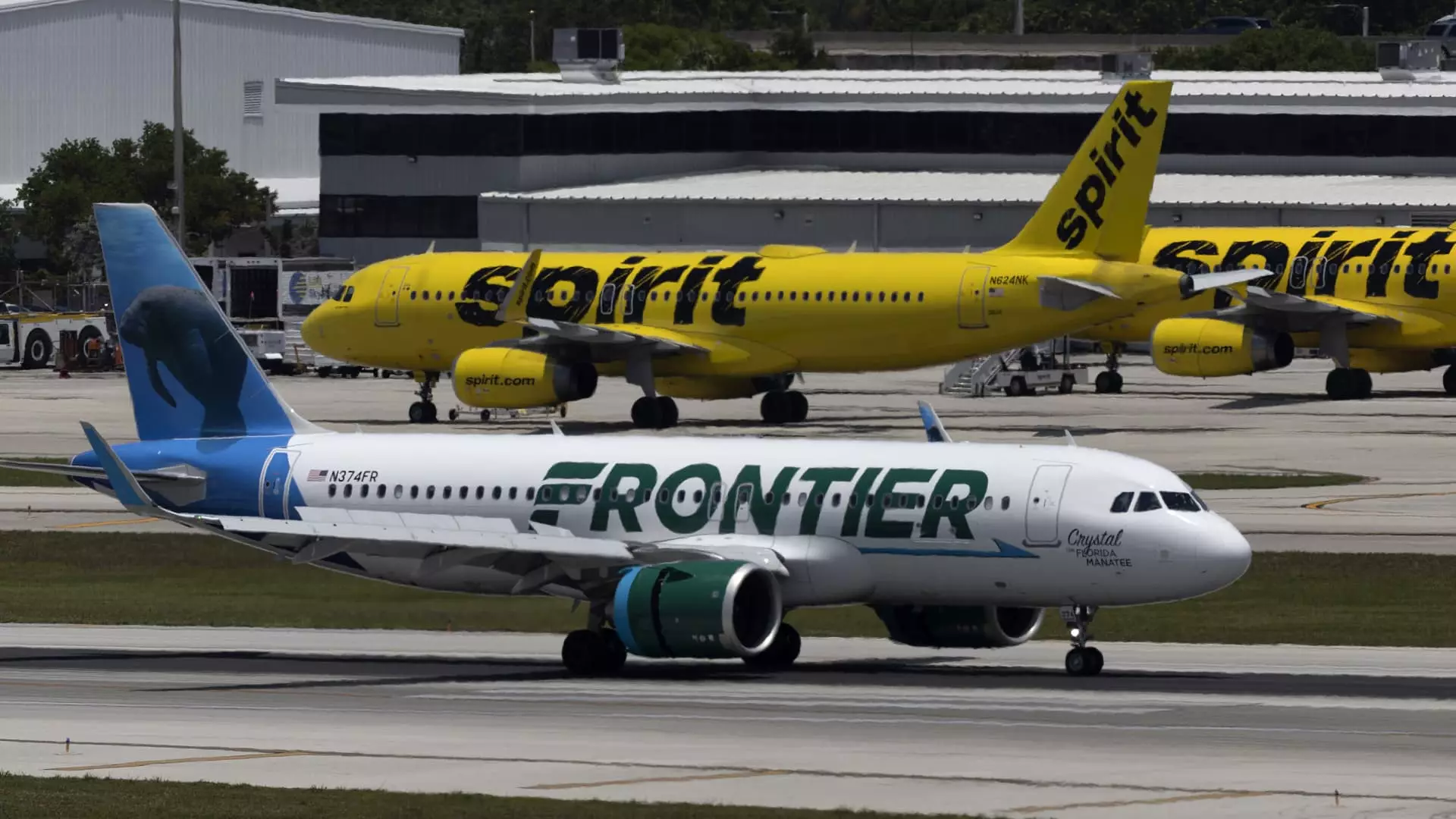In a bold move, Frontier Airlines has announced its renewed interest in merging with Spirit Airlines, a low-cost competitor currently grappling with bankruptcy. The proposed merger echoes a previous attempt in 2022 that was halted when JetBlue Airways intervened with its acquisition bid for Spirit, which ultimately did not materialize due to legal complications. The recent bankruptcy filing by Spirit, made in November, has opened the door for fresh discussions, with Frontier asserting that its merger proposal could be a lifeline for the struggling airline amid its financial turmoil.
Frontier’s executives have positioned their proposal as a superior alternative for Spirit, arguing that the latter’s current restructuring plan would leave it in a precarious financial state. In communications with Spirit’s leadership, Frontier’s Chairman Bill Franke and CEO Barry Biffle emphasized concerns over Spirit emerging “highly levered” and operating at a loss. Their emphasis on urgency suggests a belief that swift action is crucial for both airlines’ futures. This proposition highlights Frontier’s ambition to not only expand its market presence but also to strengthen its operational stability in a competitive market.
In response to Frontier’s overtures, Spirit executives swiftly rejected the merger proposal, deeming it “inadequate and unactionable.” This rejection underscores the complexities surrounding airline mergers, particularly the intricate web of financial assessments, market strategies, and inherent risks associated with such transactions. Spirit remains committed to its own plan for emerging from bankruptcy and has taken aggressive measures to cut costs – including laying off 200 employees and selling off some of its aircraft – in hopes of navigating the turbulent skies of the post-pandemic airline industry.
Both Frontier and Spirit, as budget carriers, face additional challenges in the current economic climate. Rising operational costs, particularly salaries, are squeezing profit margins, while consumer preferences have shifted. Many travelers are willing to pay more for a better flying experience, often choosing full-service


Leave a Reply